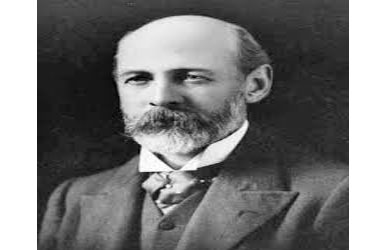Joseph Cook

Sir Joseph Cook was born on 7 December 1860 in Silverdale, Staffordshire, England. He was an Australian politician and 6th Prime Minister. He worked in coal mines of Staffordshire in his early life. During 1880s he settled in Lithgow, New South Wales.
Early Years
He was born to William and Margaret Cooke in Silverdale, Staffordshire, England. At age of nine he worked in coal mines and not completed his education. In his teen age to support Primitive Methodism and pronounced his surname by dropping the “e” letter. In 1885, he married to Mary Turner at Wolstanton and they had five sons and three daughters. Then they settled in New South Wales and worked in the coal mines.
In 1887, he appointed as General-Secretary of the Western Miners Association. In 1888, he participated in protest against Chinese immigration. In 1891, he was active member in the Single Tax League political party and founding member of the Australian Labor Party.
Political Career
In 1891, he was elected as member for Hartley of New South Wales Legislative Assembly. Later he shifted to Free Trade Party and was a minister in the cabinet of Premier George Reid from 1894 to 1899. From 1894 to 1898, he worked as Postmaster-General. In 1901, the first Australian federal election he was elected as federal seat of Parramatta. He worked for Reid as deputy minister and then Alfred Deakin party established the Commonwealth Liberal Party by help of Cook's and Deakin's parties.
In 1913 election, he became Australia's sixth prime minister as leader of liberal party with just one seat majority in the lower house and one seat in upper house due to this he repeatedly needed to hold a double result. The outbreak of World War I just before the September 1914 election led to a Labor victory. In 1916, he joined William Morris Hughes' Nationalist Party of Australia due to break up in the Labor party. In 1917, following the Nationalist victory, he performs duties as minister for the navy and then as finance minister under Hughes. In 1921, he resigned from the federal parliament and to turn into Australian High Commissioner. He then passes the Royal Commission in South Australia as affected by Federation from 1928 – 29.
Death
At the age of 86, he died in Sydney
Honours
- In 1914, Cook was appointed to the Privy Council
- In 1918, he was knighted as Knight Grand Cross of the Order of St Michael and St George
- In 1972, in his honor an Australia Post released a postage stamp bearing his portrait.
He is the only Australian prime minister until and William McMahon does not hold a federal electorate named after them. However, in the respect of him there is a chair called Cook which was named not after the Prime Minister but after Captain James Cook.
| 6th Prime Minister of Australia | ||
|---|---|---|
| In office | 24 June 1913 – 17 September 1914 | |
| Monarch | George V | |
| Governor General | Lord Denman Sir Ronald Munro Ferguson | |
| Preceded by | Andrew Fisher | |
| Succeeded by | Andrew Fisher | |
| Member of the Australian Parliament for Parramatta | ||
| In office | 30 March 1901 to 10 December 1921 | |
| Preceded by | Seat Created | |
| Succeeded by | Herbert Pratten | |
| Personal details | ||
| Born | 7 December 1860 Silverdale, Staffordshire, England | |
| Died | 30 July 1947 (aged 86) Sydney, New South Wales, Australia | |
| Nationality | British | |
| Political party | Labor, Free Trade/Anti-Socialist, Fusion | |
| Spouse(s) | Mary Turner | |
| Relations | Richard Cecil Cook (son) | |
| Children | 8 | |
| Religion | Methodism | |
- John Curtin
- Alfred Deakin
- Sir Edmund Barton
- Andrew Fisher
- Arthur Fadden
- Ben Chifley
- Billy Hughes
- Chris Watson
- Frank Forde
- Gough Whitlam
- Harold Holt
- James Scullin
- John Gorton
- John McEwen
- Joseph Cook
- Joseph Lyons
- Julia Gillard
- Kevin Rudd
- Malcolm Fraser
- Paul Keating
- Sir Earle Page
- Sir George Reid
- Sir Robert Menzies
- Stanley Bruce
- Tony Abbott
- William McMahon
- John Howard
- Bob Hawke
Australian Prime Ministers
Types Of Visas
Public Holidays
- Australia Day Replacement
- Launceston Cup
- King Island Show
- Tasmania Public Holidays
- Queensland Public Holidays
New Seven Wonders
Immigration Info
- Migrating to Australia
- State Migration Sites
- Immigration Points Calculator
- Protect Yourself from Migration Fraud
- Immigration Advice
Famous Australians
Awards In Australia
Australian Universities
- Charles Darwin University
- University of Western Australia
- University of South Australia
- Queensland University
- University of Tasmania
Australian Prime Ministers
Australian Holidays
Australian History
- Settling in Australia
- Studying in Australia
- List of Cities in Australia by Population
- Shark Killing in Australia Developments
- Australia Time Zones
Australian High Court Judges
Australian Government Structure
- Department of the Treasury
- Department of Veterans' Affairs
- Department of Sustainability, Environment, Water, Population and Communities
- Department of Regional Australia, Regional Development and Local Government
- Department of Infrastructure and Transport

